It seemed to them that they were to go on living like that, and writing like that, for ever and ever. Then suddenly, like a chasm in a smooth road, the war came.
– Virginia Woolf from The Leaning Tower, A paper read to the Workers’ Educational Association, Brighton, May 1940.
Writing and speaking in 1940 – as another war was beginning to tear the world apart – Virginia Woolf reflected on the profound impact of the Great War of 1914-18. In her essay Woolf sees WW1 as a defining moment that tore a wound in the timeline of history. No longer remote and distant war was close to home and even closer in 1940.
Wars were then remote; wars were carried on by soldiers and sailors, not by private people. The rumour of battles took a long time to reach England. It was only when the mail coaches clattered along the country roads hung with laurels that the people in villages like Brighton knew that a victory had been won and lit their candles and stuck them in their windows. Compare that with our state to-day. To-day we hear the gunfire in the Channel. We turn on the wireless; we hear an airman telling us how this very afternoon he shot down a raider; his machine caught fire; he plunged into the sea; the light turned green and then black; he rose to the top and was rescued by a trawler. Scott never saw the sailors drowning at Trafalgar; Jane Austen never heard the cannon roar at Waterloo. Neither of them heard Napoleon’s voice as we hear Hitler’s voice as we sit at home of an evening.
Writers – who during the Napoleonic era had been able to ignore the impact of a war – no longer could do so. This was true not only for the soldier-poets drawn directly into the conflict but also the non-combatants like T.S.Eliot, D.H.Lawrence and Woolf herself. All needed to grapple with the enormity and proximity of the war and its social and cultural impact.
Indeed – such was – and remains – the enduring impact of that war that writers are still grappling with its long shadow and lasting influence. Losses tore holes in families and communities that would never mend or heal. The old order was never again the same.
Many contemporary poets who grew up or were born long after 1914 have written poignantly about that war. Poets like Charles Causley (1917), Philip Larkin (1922), Ted Hughes (1930), and Michael Longley (1939) have written memorable and moving poems coming to terms with that impact.
See: On Seeing a Poet of the First World War at Abbeville (Causley 1953)
“Through the tall wood the thunder ran
As when the gibbering guns began,
Swift as a murderer by the stack
Crawled the canal with fingers black,
Black with your brilliant blood
You lit the mud.”
MCMXIV (Larkin 1964)

“Never such innocence,
Never before or since,
As changed itself to past
Without a word – the men
Leaving the gardens tidy,
The thousands of marriages,
Lasting a little while longer:
Never such innocence again.”
Platform One (Hughes 1998)
“Out there on the platform, under the rain,
Under his rain-cape, helmet and full pack,
Somebody, head bowed reading something,
Doesn’t know he’s missing his train.
He’s completely buried in that book.
He’s forgotten utterly where he is.
He’s forgotten Paddington, forgotten
Timetables, forgotten the long, rocking
Cradle of a journey into the golden West,
The coach’s soft wingbeat – as light
And straight as a dove’s flight.”
In Memoriam (Longley 1969)
“You, looking death and nightmare in the face
With your kilt, harmonica and gun,
Grow older in a flash, but none the wiser
(Who, following the wrong queue at The Palace,
Have joined the London Scottish by mistake),
Your nineteen years uncertain if and why
Belgium put the kibosh on the Kaiser.”
Here is a sly and evocative poem by contemporary poet Janet Sutherland
Suvla Bay, Gallipoli 1915
slipped between the pages 
of the minute book
of the Fulmer Society of Bell Ringers
two letters written from the front
“ my dear pater, on Friday we will have been five weeks ashore”
what remains
each page of the book watermarked, an image
of Britannia centre stage, crude cameo
with shield, and trident rough waves
and thirteen poems, typed, stuck carefully in
“ we had a pretty hot strafe on the 21st I was….under heavy fire all day and most of next day”
just this
others, the limericks, light verse
on scraps tucked in the marbled end papers
whatever came to hand, the coal factors bill
1954 £1 5s 11d
“ I went up on top of a hill the other night and started a dressing station….there were lots of snipers”
these pieces
on the back of form B941/MT the National
Milk Testing Service raw milk regulations 1949
a piece about ermine and something that caught
the eye in 1924 a page torn out of punch.
“ and one of my men went potty with nervous strain – he sat in a corner and could not speak and kept rubbing his hands together”
folded
“ we are praying for one night’s frost to kill the flies….
they sit on your food as you put it in your mouth
and walk all over your nib as you write….when you remember
where they come from the idea is not very pleasant…
“ there is no news, you can’t believe a word you see in the papers”
in the dark
– Janet Sutherland
First published in Shearsman 69 & 70 Autumn 2006/Winter 2007
also in collection, Hangman’s Acre, 2009, Shearsman Books
Scraps of the past, odds and ends of experience and creation tucked away into obscurity only to live again in a poem of poignancy and remembrance. Sutherland is haunted by things she never saw or felt or knew. Experiences, contrasts and contradictions that indwell, remain close to the heart and are brought to mind by chance residual wisps of past lives. A new here and now – not remote, far-off, forgotten.
When I wrote to Janet Sutherland asking for her permission to share her poem she sent back two quite amazing documents (the kindness of strangers!) that provide background and personal context for the poem: Two letters from her grandfather to his father in Dublin from Gallipoli, her grandfather’s poem book and a couple of the pieces of paper which have notes for his poems on the back. Here they are: Take a look and return to read her poem again.
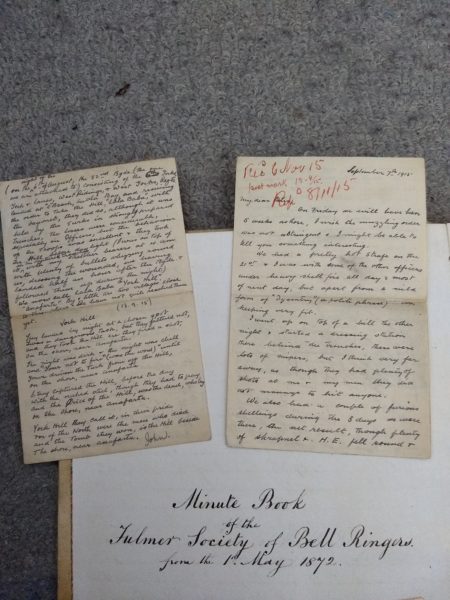
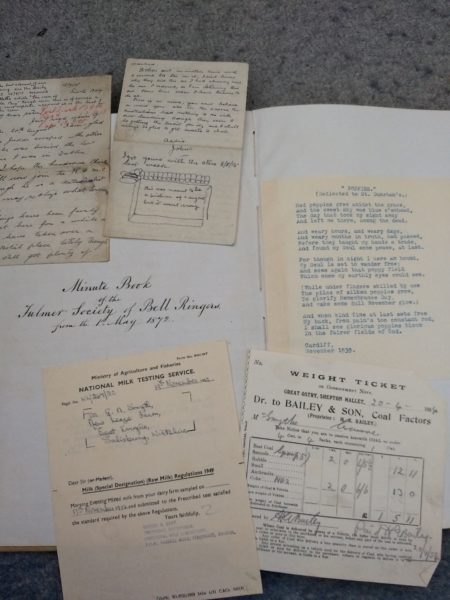
Included in that last image – top right – is the poem “Poppies” written 20 years after the Armistice and as a new war was just beginning. Here it is:
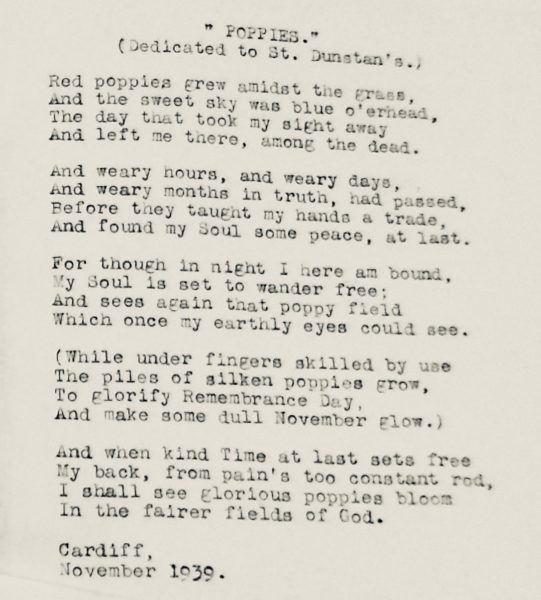
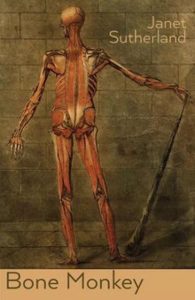
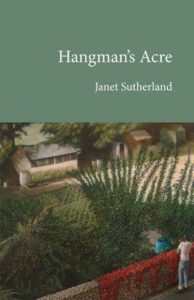 Janet Sutherland has three full collections with Shearsman Books: Burning the Heartwood, 2006, Hangman’s Acre, 2009 (in which “Sulva Bay” appeared) and her most recent, Bone Monkey, 2014.
Janet Sutherland has three full collections with Shearsman Books: Burning the Heartwood, 2006, Hangman’s Acre, 2009 (in which “Sulva Bay” appeared) and her most recent, Bone Monkey, 2014.
You can read more about her and read other poems on her website: Janet Sutherland
Her new book, Home Farm, will be out in January also from Shearsman. Something to look forward to.
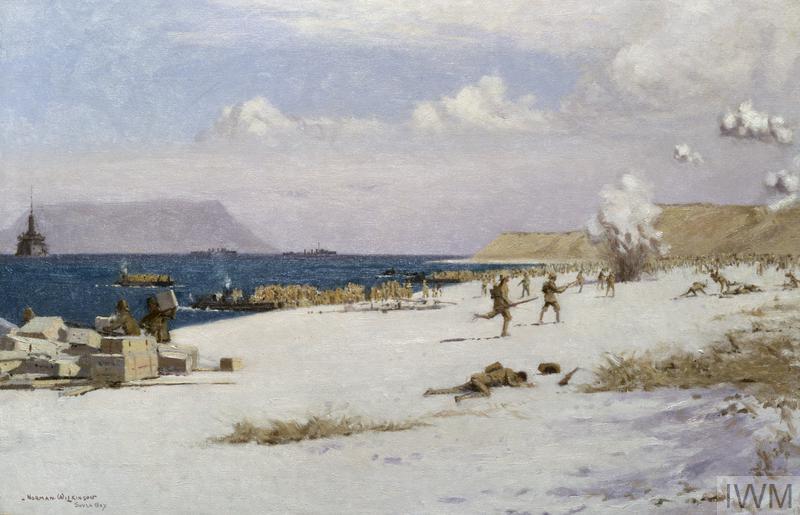
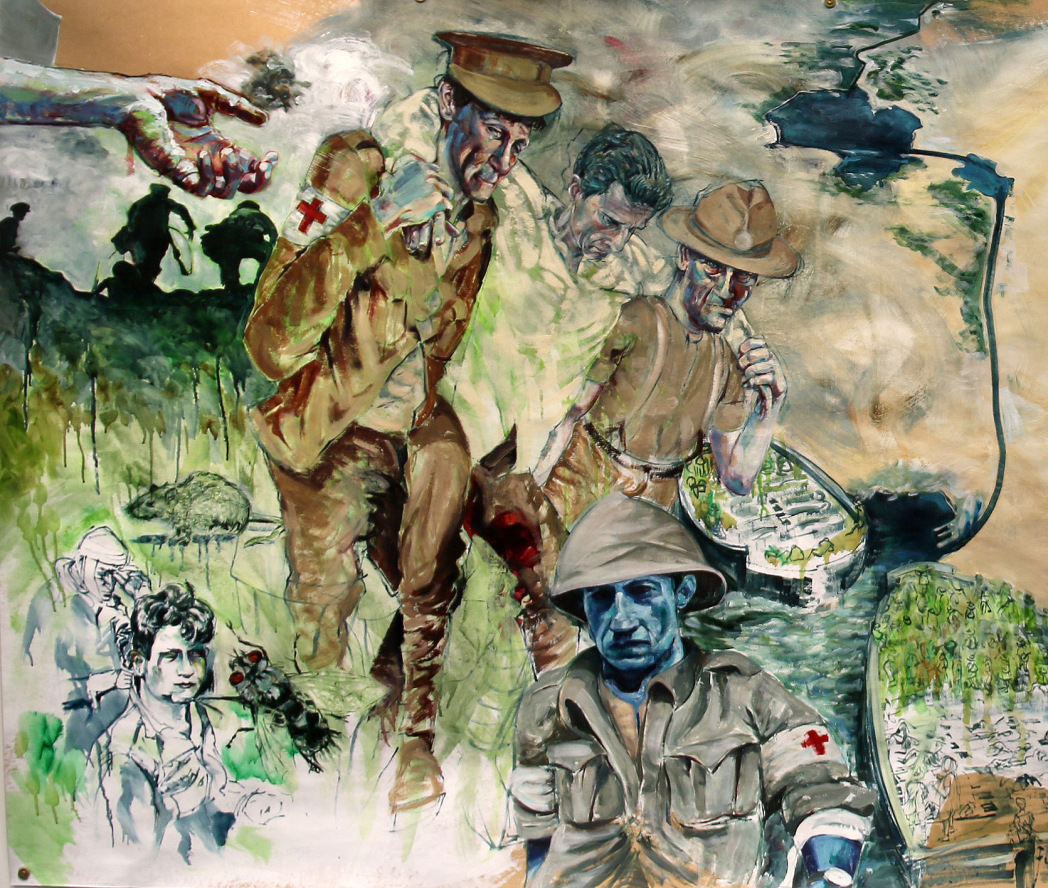
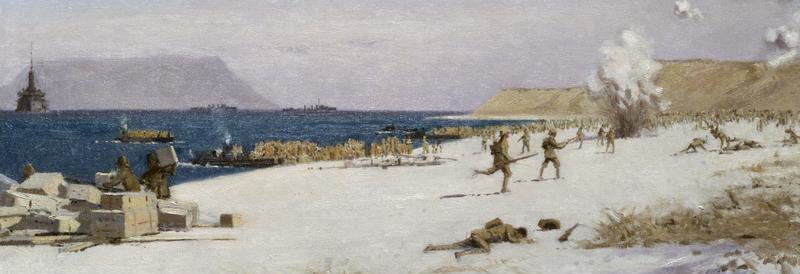
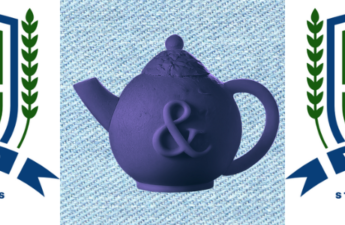

New poems and now a new poet! Thanks.
Leaving the gardens tidy,
under the rain,
Grow older in a flash, but none the wiser
Under his rain-cape, helmet and full pack,
“ there is no news, you can’t believe a word you see in the papers”
in the dark
We are cast as tapering shadows
having forgotten who we were when we set out.
Thanks – new poem for me.
Love Michael Longley. Many of his poems are about the war and his decorated boy-soldier father and his wounds. In the poem “Citation” he even takes the words from his father’s citation for the MC as it appeared in The Times in 1918 and it becomes a kind of “found and made a new poem.”
I found this poem by Janet Sutherland that I really like
Not about the war though
Chalk Paths
At that exact spot there was a beautiful stillness;
we were poised to begin our course along the shoulder
and two white lines, always at the proper angle,
ran like the heavier veins of a bright mineral
up to the surface—quartering, as it seemed, the land.
It was as if there had been a flood, the paths dipping
and rising to a pale grey and pared to a point
where they were hoisted to the sky. Clear water, a refractive
brilliance, and these thoughts running between us.
The folds of the hills blown like glass to a definite
smoothness, the sea picked at by light. But none
of this is ornamental; with the minimum of force,
you said to me ‘choose’. We are cast as tapering shadows
having forgotten who we were when we set out.
https://www.thelondonmagazine.org/three-poems-by-j
Thanks for the poem Codger. And for the link to more. Good stuff!